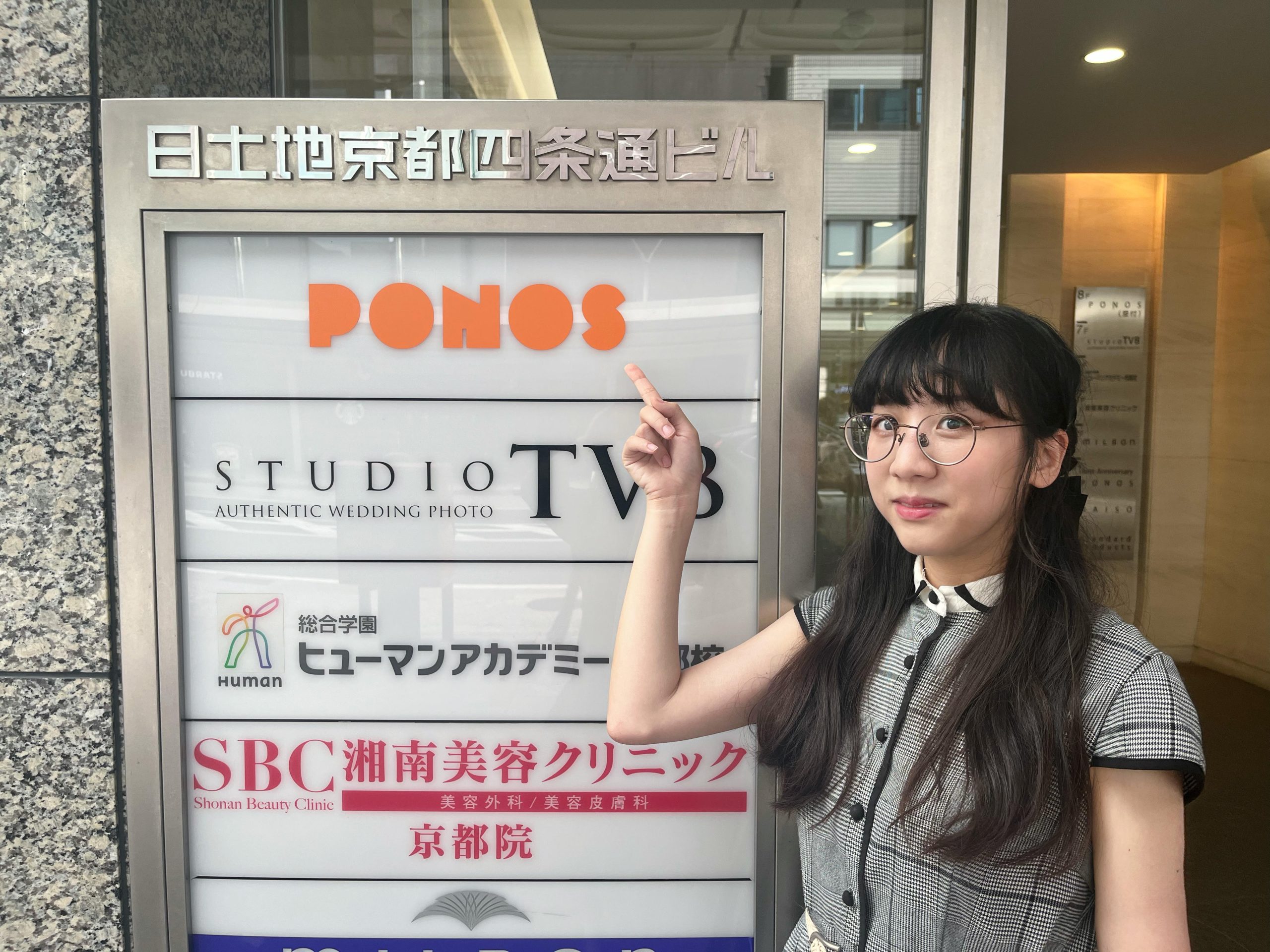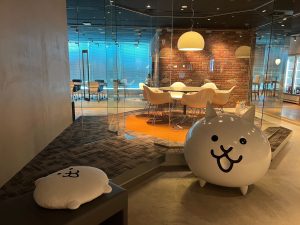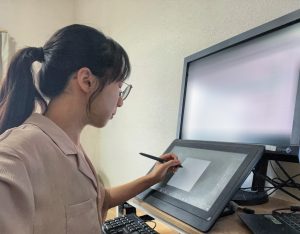I wanted a challenge designing Japan’s unique games
PONOS Corporation
Shihting Tsao (From Taiwan)
School:Kyoto Institute of Culture and Language
※Interview in 2022

Why did you decide to study in Japan? Why Kyoto in particular?
After I graduated from university, I worked for two years in the games industry in Taiwan, but I wasn’t really inspired by what I was doing, and I wanted a new challenge. I’d admired the originality of Japanese games for a long time, and wanted to experience working on them in Japan. I knew I’d need the language skills, though. Before coming to Japan, I studied Japanese for about six months in Taiwan, meeting with a teacher in a café with four other students to prepare.
To decide on a school, I went to a study abroad agency in Taiwan, and told them what kind of program I was looking for. I wanted a school that offered cultural and club activities, and opportunities to interact with Japanese people. At the time, I had visited Japan before, but only Tokyo and Okinawa. The study abroad agency presented me with schools in several different locations, but Tokyo seemed expensive, and like I’d be stuck living in a tiny apartment. Kyoto, though, was a place I’d never been before—and after all, Nintendo is headquartered in Kyoto!—so I decided to experience a new city. The Kyoto Institute of Culture and Language, where I studied, also offered all the things I was looking for in a Japanese language school.
What memories stand out to you from your experience studying in Kyoto, Japan?
I have really good memories from the club activities (bukatsu) I did at the language school: I joined the tea ceremony club. I really enjoyed the field trip we took to the home of another tea ceremony teacher in Nagoya. When I first arrived, my Japanese still needed some work, and I could only understand about half of what the teacher was saying (laughs). But the older students were really supportive and helped me out.
I love how traditional Japanese tea sweets used in the ceremony come in different designs depending on the season, but sometimes they’re a little too sweet for me!
How did you go about job hunting?
I started my job hunt after being here for six months. I knew I’d wanted to work here since the beginning, and I was serious about applying myself. I was always in the library, studying Japanese and preparing. My friends used to joke about it: ’If anyone wants to find her, check in the library!’
The job hunting system in Japan is quite different than in Taiwan: in Taiwan, you just apply online directly with a company and wait for their response. Here, though, I needed to sign up for many different job-hunting websites to search for opportunities. I looked up gaming companies, and even went to Tokyo for interviews.

How did you find your current company, and why did you decide to work there?
I actually heard about PONOS from a Taiwanese friend who was already working there. Because of that, I was able to hear about what it was really like to work there, and that gave me more confidence.
There are about three other Taiwanese people working here, as well as several other employees from different countries, so the company seemed to be quite foreigner-friendly. It was also located in Kyoto, a city that I thought would be nicer to live in than Tokyo, and I wouldn’t have to move far away. In the end, I made my decision to work at PONOS after thinking carefully about the job location, salary, the sense I got of what things are like in the office, and so on.
What do you do at your job now? What do you like about it?
I’m a game designer, and recently, I’ve been in charge of checking background designs for the games with my team. When I was working in Taiwan, I felt like I was always doing the same thing, but working at my current company is fun. I’ve been working on our game The Battle Cats. I think this kind of game is very unique and playful [in a way that’s particular to Japanese games], compared to the games I’d worked on before.
I have a good working environment here, and we can be flexible about how we manage our time. The company even supports us when we want to study to improve or gain new skills: for example, I’m currently taking a design class to brush up on my abilities.

Since the pandemic, we’ve switched to all remote work. With design work in particular, some things can be harder to explain via text, so in those cases I can use video with my coworkers to explain or draw out how to adjust the designs.
When I first joined the company, using Japanese was quite difficult for me, and I cringe a little bit now if I look back on some of my old messages from the beginning—I often used the wrong words (laughs). But now I have no problems using Japanese in the office.
What advice would you give to other international students thinking about studying or working in Japan?
Be sure to take your time studying while you’re in school! (laughs) I found it quite challenging to jump into job hunting after one year of school, and I spent most of that time studying. I think it’s important to also be sure to take the time to enjoy the city of Kyoto while you’re studying abroad. It’s a special time when you’re a student, and it’s important to balance both studying with enjoying some of Kyoto’s unique culture.
I also recommend giving yourself plenty of time to job hunt! What you’ll need to prepare will vary from person to person and the job you’re hoping to get—in my case, I needed to study Japanese and prepare my portfolio—but you’ll want time to prepare it.





